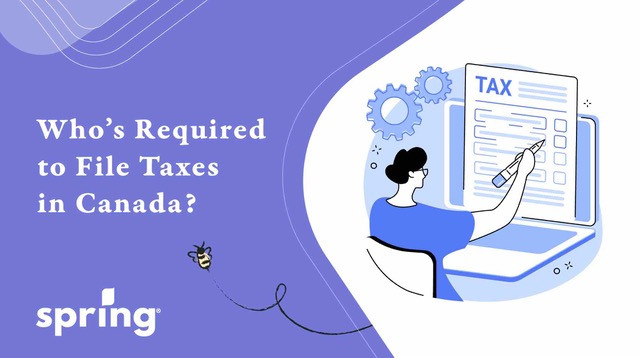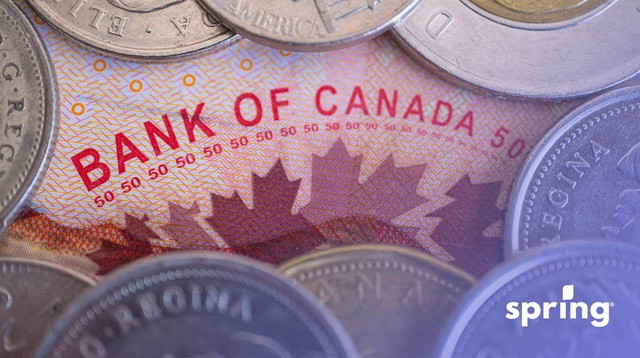Well, it makes more of an impact on you than you may think. It affects everything from grocery prices to energy prices, and everything in between. It also has a major impact on interest rates and what you are able to purchase.
Inflation in Canada
Inflation isn’t a bad thing, in fact, the target rate of inflation is 2% per year. It helps to stimulate economic growth and contributes to the global economy and global growth. The issue lies when inflation rates are higher than the target rate. That is what’s currently happening in Canada. Instead of inflation sitting at 2%, as of January, 2023, the inflation rate was 5.9%. As of January 2025, inflation now sits at 1.8%.
You may be wondering what exactly causes inflation. Essentially, it’s supply and demand. If there are supply chain disruptions and the demand becomes higher than the supply, then inflation occurs. Once these supply chain bottlenecks occur, it becomes a domino effect and everything is affected. It can also be affected by lower commodity prices but supply and demand is the most common cause.
In the central bank’s (Bank of Canada’s) monetary policy there are two parts: the inflation-control target and the flexible-exchange rate. Since the inflation rate of 5.9% in 2023 exceeded the monetary policy rate of 1%-3%, measures had to be taken in order to combat this. According to historical data, it hadn’t been this high in over 25 years. The actions the Bank of Canada took have reduced inflation to normal range.
Measuring and Keeping Track of Inflation
With inflation and interest rates increasing over time, it’s important to keep track of the prices of things and keep an eye on things as they keep going up. There are plenty of programs and organizations that keep track of this data.
The CPI inflation rate calculator, also referred to as the consumer price index calculator, measures the rate of inflation from 1914 to the present. This shows the increase in cost on consumer purchases, which is just a small piece of overall inflation.
Canada is also part of the Organisation for Economic Co-operation and Development. 20 countries are a part of this, and while it doesn’t directly affect inflation rates, they do focus on promoting economic growth and stability. Keeping track of inflation and finding ways to combat it helps them do that.
The Department of Finance also keeps track of inflation rates as well as the economic development of the country by surveying private sector forecasts. These are also used to help with the yearly federal budget.

How to Combat Inflation
In order to reduce the inflation rate, the Bank of Canada has to increase interest rates. These increased prime rates then force the banks to increase their rates as well. This slows down the rate of purchasing which will slowly decrease the rate of inflation. That said, it can affect your day to day life in the short term, especially when it comes to borrowing costs. However, it’s important to remember that when inflation decreases, so does the prime rate.
How Increased Rates Directly Affect You
With persistent inflation rates and increasing prices, many people forget that while the cost of living is increasing, their wages aren’t. The real wage, even in advanced economies like Canada, isn’t always enough to combat the prices that occur during stubbornly high inflation. Even with a strong labour market, nominal wages aren’t quite enough for Canadians to survive. Combine that with debt that already existed before inflation, more working Canadians are struggling than ever before. This is shocking since, according to labour statistics, unemployment has even reduced in Canada.
The Ability to Purchase During Inflation
With the sharp rise in inflation, and the fact prices remain elevated, many Canadians are struggling to make ends meet. When it comes to purchasing power, more Canadians are considering personal loans just to get by, rather than purchasing a home. Combine the higher everyday purchase rates with minimal wage increases, rising interest rates and stricter mortgage rules, there aren’t a lot of people looking to leave the rental market as those that are are making sacrifices in order to make ends meet.
There is less cash flow than there used to be which directly reflects your disposable income and debt to income ratio. This can make being a first time home buyer more difficult than ever. It can also affect everyday lending depending on what you are looking for. Especially since a recession, or shallow recession, is predicted. This is what the Bank of Canada is looking to prevent though which is why they have taken such drastic action with the interest rates.
Now that these rates have started to reduce though, many people are finding it much more affordable to purchase a home. Housing prices are staying stagnant, allowing those who can afford the prices to purchase at a slightly lower interest rate.
Spring Financial Can Help
We understand that sometimes there just isn’t enough to go around. This is where we come in. We offer personal loans that you can get from the comfort of your own home. We offer amounts ranging from $500 -$35,000 at rates starting at just 9.99%. Our simple application can be conveniently accessed from anywhere. You can also pay off the loan in full at any time with no extra fees or penalties. Apply today to see what you can be approved for.








